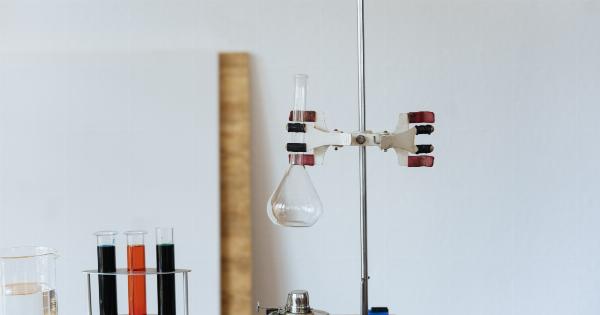Fluid retention, also known as edema, is a condition where excess fluids accumulate in the body’s tissues. This condition is relatively common and can occur in any part of the body.
Although in most cases, fluid retention is not serious, it can be indicative of an underlying medical condition. In this article, we’ll discuss the probable causes of fluid retention and what you can do to manage it.
Cause 1: Excessive Sodium Intake
Sodium is essential for maintaining fluid balance in the body. However, excessive consumption of sodium can disrupt fluid balance, leading to fluid retention.
The kidneys work to balance the sodium intake, and when they are unable to flush out the excess sodium, fluid accumulates in the body, leading to edema. Generally, the recommended daily intake of sodium is 2,300 mg. However, individuals who are overweight, older adults, or those who have high blood pressure, diabetes, or kidney disease should limit their sodium intake to 1,500 mg per day.
Cause 2: Hormonal Changes
Hormonal changes during the menstrual cycle and pregnancy can also cause fluid retention. During the menstrual cycle, the body produces estrogen and progesterone, which can cause bloating, mood swings, and fluid retention.
Similarly, during pregnancy, the hormone progesterone causes the body to retain excess fluids, which causes swelling in the legs, hands, and feet. Additionally, hormonal changes during menopause can result in fluid retention in some women.
Cause 3: Cardiovascular and Kidney Diseases
Cardiovascular and kidney diseases can cause fluid retention. In cardiovascular diseases, fluid retention occurs as a result of a weakened heart muscle that is unable to pump fluid efficiently, leading to an accumulation of fluid in the body.
In kidney disease, the kidneys are unable to eliminate excess water and sodium, leading to edema. Common symptoms of cardiovascular and kidney diseases include shortness of breath, fatigue, and swelling in the legs.
Cause 4: Sedentary Lifestyle
A sedentary lifestyle can also cause fluid retention. When the body is inactive, the veins’ valves in the legs are unable to circulate blood efficiently, leading to swelling in the legs and feet.
This condition can be managed by taking frequent walks, performing regular leg exercises, and elevating the legs to increase blood circulation.
Cause 5: Allergic Reactions
Fluid retention can also occur due to allergic reactions to food, insect bites, and medications. An allergic reaction causes the body to release histamines, which cause the blood vessels to leak and fluid to accumulate in the tissues, leading to edema.
Cause 6: Inactivity After Surgery
Inactivity after surgery can also cause fluid retention. When the body is in a resting state after surgery, the muscles’ contractions that help maintain blood circulation are reduced, leading to swelling in the legs and feet.
Patients are often advised to move their legs frequently, perform light exercises, and wear compression stockings to reduce the risk of fluid accumulation after surgery.
Cause 7: Inadequate Protein in the Diet
Protein plays a critical role in maintaining fluid balance in the body. Inadequate protein intake can lead to fluid accumulation in the tissues.
Proteins help maintain adequate levels of fluid in the body by keeping the blood vessels’ pressure within normal levels. Individuals who do not consume enough protein to meet their daily requirements may experience swelling, fatigue, and other symptoms of fluid retention.
Cause 8: Medications
Some medications can lead to fluid retention. Medicines such as hormones, antidepressants, anti-inflammatory drugs, and high blood pressure medications can cause fluid accumulation in the body.
If you are on any medication and experience symptoms of fluid retention, it is advisable to speak with your doctor. Your doctor may adjust your medication or recommend an alternative treatment to help manage the fluid retention.
Cause 9: Liver Disease
Liver disease can also cause fluid retention. Individuals with liver diseases such as cirrhosis may experience a buildup of fluid in the abdomen, known as ascites. Ascites can cause discomfort, abdominal pain, and shortness of breath.
The accumulation of fluid results in a noticeable increase in belly size, and the condition could cause severe complications, including kidney failure and infection.
Cause 10: Pregnancy
Pregnancy can cause fluid retention, commonly in the legs and feet. During pregnancy, the uterus puts pressure on the blood vessels in the pelvis, causing fluid to accumulate in the lower extremities.
While this condition can be uncomfortable, it usually resolves after childbirth. Women who experience severe swelling during pregnancy should speak with their doctor as it could be a sign of a more serious condition.
Conclusion
Fluid retention can occur due to several reasons, and in most cases, it is not serious. You should, however, speak with your doctor if you experience severe swelling, difficulty breathing, or other symptoms of fluid retention.
In addition to speaking with your doctor, it is advisable to maintain a healthy diet, exercise regularly, and limit your sodium intake to prevent fluid accumulation in the body.































